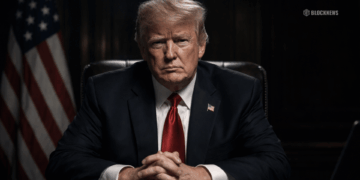- Local media reports blamed P2P crypto exchange for Bureau De Change operators ceasing operations due to lack of US dollars, but analysts refute any direct link between the two sectors.
- Legal expert Kue Barinor Paul explained cryptocurrency plays only a minor role in Nigeria’s forex activities compared to larger macroeconomic factors, so blaming crypto distracts from real issues.
- Though Nigeria has the world’s largest P2P crypto market, analyst Rume Ophi says it expands transaction access for Nigerians seeking foreign exchange and inflation hedges, presenting potential collaboration with BDCs pending regulations.
A recent shutdown of Bureau De Change operators in Nigeria’s capital has sparked debate about whether the peer-to-peer cryptocurrency market is to blame. Analysts argue there is no direct link between the two sectors.
Claims Made About Crypto’s Role
Local media reports stated that Bureau De Change operators in Abuja announced ceasing operations due to a lack of availability of US dollars. The currency traders cited the existence of P2P crypto exchange as a contributing factor.
Analysts Refute Direct Link Between Crypto and Forex Shortages
In an interview, Nigerian legal expert Kue Barinor Paul clarified that the allegations lack merit. He emphasized cryptocurrency plays a minor role in Nigeria’s forex activities compared to larger macroeconomic factors.
Paul explained that BDCs deal in physical fiat currency, while crypto transactions involve digital assets like stablecoins. Hence, there is no direct competition between the sectors. Blaming P2P crypto for BDCs’ liquidity issues distracts from the real problems causing forex shortages.
The P2P Crypto Market’s Growth in Nigeria
Nigeria has the world’s largest P2P crypto market, which emerged after the central bank banned institutions from buying and selling crypto in 2021. However, a recent circular lifted the crypto ban on banks.
Crypto analyst Rume Ophi agreed that crypto expands transaction access for Nigerians seeking foreign exchange and inflation hedges. Ophi and Paul highlighted potential collaboration between BDCs and crypto operators pending appropriate government regulations.
The debate surrounding the Bureau De Change shutdown reveals mixed perspectives on cryptocurrency’s role in Nigeria. While the P2P crypto market is booming, analysts argue it is unconnected from forex shortages caused by broader economic factors. As crypto adoption rises, Nigeria’s government will need to balance regulation and innovation.














